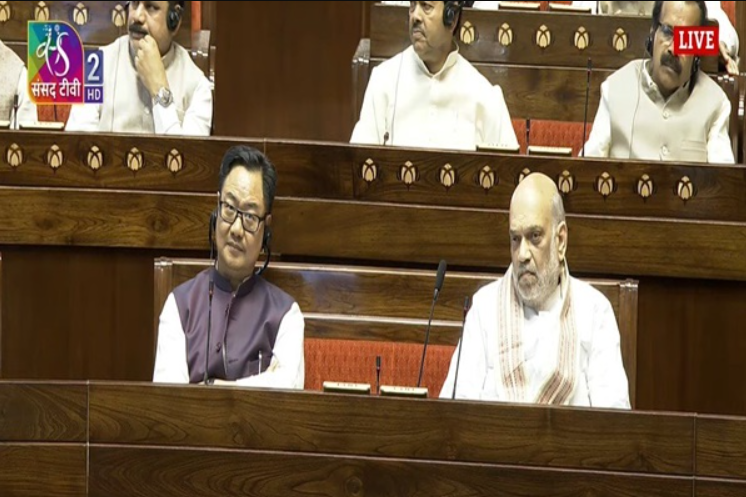Waqf Board Amendment Bill ‘s Key Features and Impact
The Waqf (Amendment) Bill, 2024, tabled in Parliament by the Indian government, aims to reform the governance of Waqf holdings in India. This measure has provoked heated controversy among many stakeholders, including opposition parties and Muslim organizations. The Waqf boards, with holdings valued over ₹1.2 lakh crore and approximately 9 lakh acres of land, are India’s third-largest landowners, behind the Railways and the Defense Ministry.
What is Waqf?
Waqfs are properties granted for religious or philanthropic reasons under Islamic law. Once recognized as waqf, the property is irreversible, which means it cannot be sold, transferred, or inherited. Waqf boards monitor these properties and assure their appropriate usage.
Key provisions of the Waqf Board Amendment Bill, 2024.
1. New Governance Structure
-
- The bill proposes renaming the Waqf Act of 1995 as the Unified Waqf Management, Empowerment, Efficiency, and Development Act.
- It creates a Central Waqf Council and State Waqf Boards under more organized supervision.
2. Inclusion of Women and Non-Muslims
-
- The measure requires the nomination of at least two Muslim women to each state waqf board and the Central Waqf Council.
- The inclusion of non-Muslim representatives has sparked opposition from religious organizations.
3. Land Disputes: Shift in Decision-Making Power
-
- Previously, Waqf Tribunals had the jurisdiction to determine whether a property was Waqf or government land.
- Under the modification, the District Collector would now have this ability, with the purpose of reducing land conflicts and abuse.
4. Separate Waqf Boards for Different Muslim Sects
-
- The measure establishes separate Boards of Auqaf for Bohras and Aghakhanis, respecting their unique traditions.
- It assures representation of the Shia, Sunni, Bohra, and Agakhani communities on Waqf boards.
5. Stricter Documentation Requirements
-
- The measure requires a valid waqfnama (gift deed) before a property may be recognized as waqf.
- Currently, properties can be declared as waqf even through oral statements, resulting in legal problems.
6. Central Oversight on Audits
-
- The government will now be able to examine any Waqf property through an auditor designated by the Comptroller and Auditor General of India (CAG).
- This aims to increase financial transparency and accountability.
Parliamentary Debate and Controversy on Waqf Board Amendment Bill
Opposition’s Concerns
The opposition parties have expressed many reservations about the bill:
- Allegations that dissenting notes from the Joint Parliamentary Committee (JPC) were suppressed before the measure was introduced.
- Fear that granting the District Collector jurisdiction over Waqf land issues may lead to prejudice and abuse.
- The inclusion of non-Muslims on Waqf boards is viewed as an interference in Islamic management.
Government’s Justification on Waqf Board Amendment Bill
- According to the ruling party, the bill will improve Waqf property management and prevent land misuse.
- It claims that the amendments are aimed at transparency, efficiency, and equitable representation.
Conclusion: Impact of the Waqf Board Amendment Bill
If passed, the Waqf (Amendment) Bill, 2024 will bring significant changes to how Waqf properties are governed in India. While the government views it as a reform to improve governance and transparency, the opposition and religious groups argue it could interfere with the autonomy of Muslim institutions. The debate over the bill highlights the complexities of managing religious properties in a secular democracy
More information about Waqf Board and Waqf Board Amendment bill 2024
Union Minister Kiren Rijiju introduced the Waqf Board Amendment Bill 2024 in the Lok Sabha. This bill seeks to change the Waqf Act of 1995, calling it the Unified Waqf Management, Empowerment, Efficiency, and Development Act. Proposed adjustments include:
- Centralized Registration of Waqf Properties – The law seeks to establish a central platform to expedite Waqf property registration, making administration more transparent.
- Regulation of Waqf Boards – The measure increases the government’s ability to regulate Waqf holdings, with the claimed goal of reducing land encroachment and corruption.
- The law proposes that District Collectors have the authority to determine whether a property belongs to the Waqf or the government.
- Non-Muslim Inclusion in Waqf governing – It suggests allowing non-Muslims to serve on the Waqf governing council, which has long been contentious.
- New Central Waqf Council and State Waqf Boards – These institutions will comprise Muslim women representatives and non-Muslim members, striving to increase inclusion.
Controversies and Opposition Concerns on Waqf Board Amendment Bill
Several political parties and Muslim leaders have expressed significant opposition to the law.
- Congress MP KC Venugopal has denounced the law as harsh and an attack on religious freedom. He accused the administration of attempting to cause division and discord among communities.
- AIMIM MP Asaduddin Owaisi alleged that the law contradicts judicial principles by limiting Waqf board management while leaving Hindu religious boards alone.
- Kanimozhi, a DMK MP, said that the law violated Article 30, which safeguards minorities‘ rights to run own institutions.
- Muslim leaders and groups are concerned that the law may result in more litigation and the loss of Waqf holdings, as witnessed in the Telangana demonstrations.
Government’s Justification on Waqf Board Amendment Bill
The central government has defended the measure, claiming that it is not anti-Muslim, but rather an effort to increase openness and reduce corruption. Kiren Rijiju said that the Waqf board is dominated by land mafias, and the measure seeks to defend Waqf properties from criminal encroachments.



